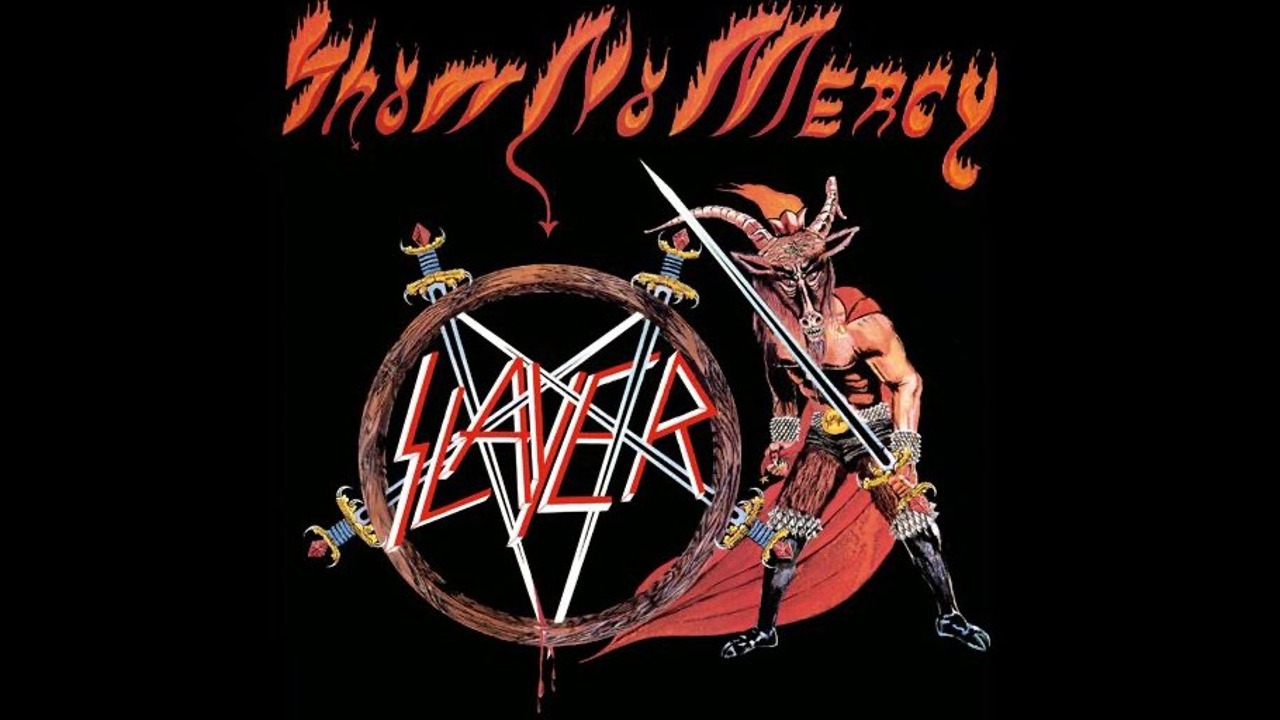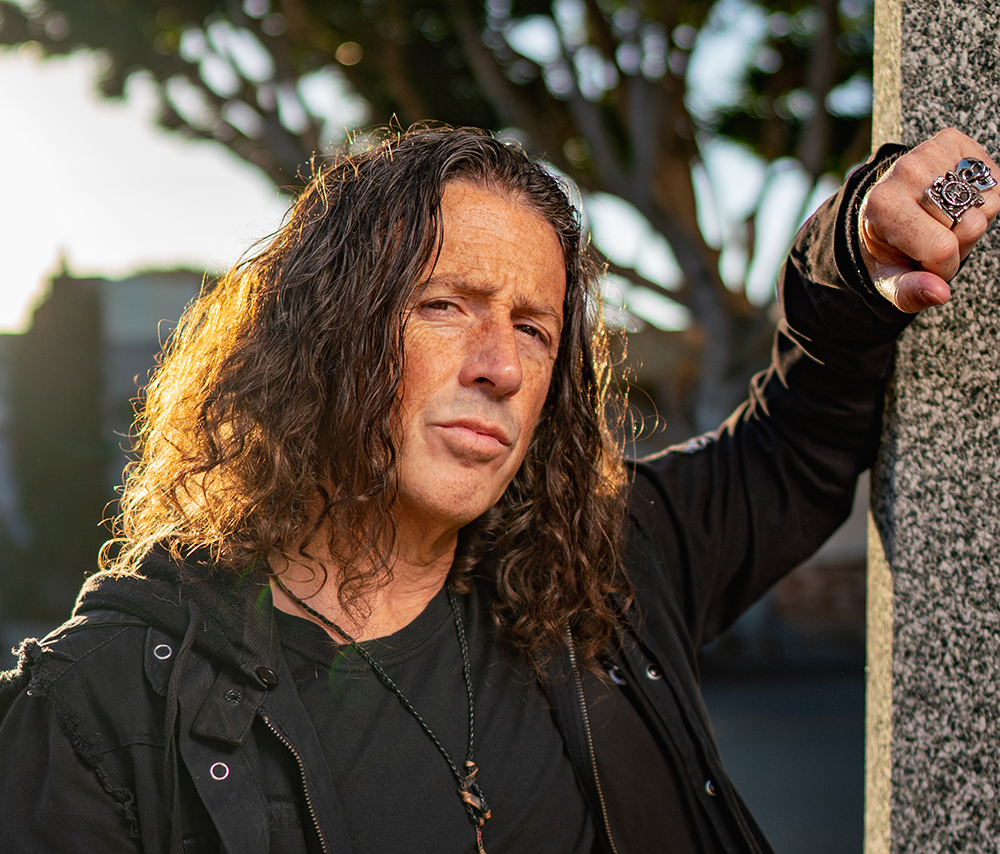The chaotic landscape of early-’80s Los Angeles birthed Mötley Crüe, W.A.S.P. and lashings of hair metal excess – plus, the most brutal thrash band ever known to man. Released on December 3, 1983, Slayer’s full-length debut, Show No Mercy, detonated with the force of a concussion grenade, clearing the way for its genre’s fiery evolution. At a time when the parameters of fast-paced metal were still being defined, Slayer screamed a seismic war cry that echoed across the globe.
In the summer of 1983, Metallica released Kill ’Em All from up the road in San Francisco, setting a new standard for just how much speed and aggression a band could pack into their music. Slayer, however, were charting their own course. Speaking with Jon Wiederhorn in 1998, vocalist and bassist Tom Araya reflected: “We were doing the same thing at the same time as Metallica, so it wasn’t really groundbreaking when we first heard No Life ’Til Leather [the 1982 Metallica demo]. It was more like, ‘Dude, check out this tape. Who the hell is this? They sound kinda like us.’ We were tripped out.”
Show No Mercy’s inception is a tale of grassroots passion. Slayer first made their bones in the early ’80s as an underground band, but in 1982 – after seeing the band open for Bitch at the Woodstock Theater in Anaheim, California – Metal Blade Records founder Brian Slagel asked if they would submit a track to his forthcoming compilation album, Metal Massacre III. Slayer turned in Aggressive Perfector and Slagel offered them a contract. With Metal Blade as their launchpad, the four-piece shifted gears dramatically, embracing a darker, more menacing identity.
Slayer’s debut was a product of intense late-night recording sessions, financed by Araya’s earnings as a respiratory therapist and a loan from guitarist Kerry King’s father. The total bill was $1,500. This gritty, do-it-yourself approach was evident in the album’s unpolished production: a quality that, for many, enhanced its appeal.
Musically, Slayer drew from a diverse pool of influences. While the shadows of Judas Priest and Iron Maiden loomed large (Crionics, Metal Storm/Face The Slayer, Tormentor), this band’s sound was distinctly their own: a venomous blend of speed, ferocity and darkness. Late guitarist Jeff Hanneman’s punk influences melded seamlessly with King’s metal leanings, showcasing a fusion that was both unique and explosive, as on opener Evil Has No Boundaries, The Final Command and the title track.
Overtly satanic lyrical themes on tracks like The Antichrist and Die By The Sword unleashed a hateful, violent rebellion against the lusty glam then clogging up mainstream radio. They also influenced a future generation of black metal bands. And the dark and evil overtures were not unintentional.
In The Bloody Reign Of Slayer, author Joel McIver shares a story where drummer and friend of the band Gene Hoglan, after hearing opener Evil Has No Boundaries, suggested that the song needed some extra malice.
“It didn’t sound too heavy,” Hoglan believed, so he pitched throwing in some gang vocals. The band agreed, and that’s how they ended up shouting “Evil!” along with Hoglan and a few friends.
Despite (or possibly because of) its low-budget production, Show No Mercy quickly ascended to become Metal Blade Records’ best-selling release at the time. It also laid the groundwork for what would become signature elements of Slayer’s music: blistering tempos, aggressive riffs and unapologetically dark messaging. Show No Mercy’s influence then extended well beyond its initial release. Musicians like Terry Butler, of Obituary and Death fame, hailed it as “the blueprint for the beginning of death metal”.
40 years on, the legacy of Show No Mercy endures. Its raw sound is now revered as a hallmark of authenticity. And for Slayer, whose very name is now shorthand for sonic ferocity, the album would light a beacon for diehard metalheads across the globe – a haven for those dejected in a world grown glammy and dull.


